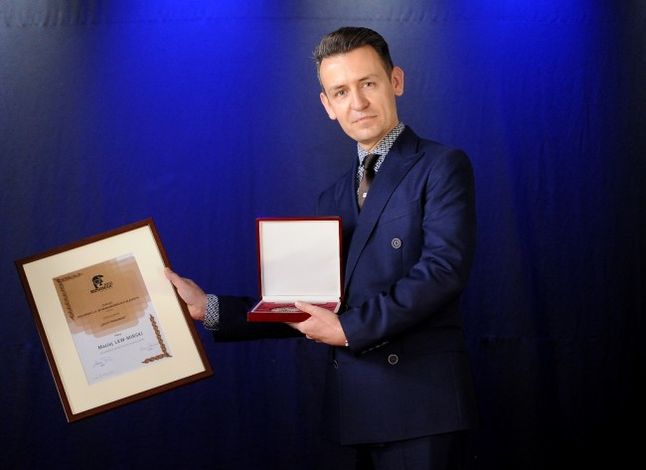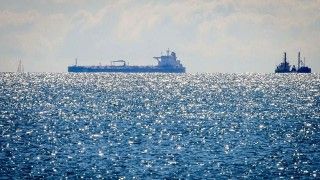- WIADOMOŚCI
Rosomak Company Celebrates Its 65th Anniversary
Rosomak S.A. company, belonging to the Polish Armaments Group, has celebrated its 65th anniversary. The main product offered by the said entity is the license-manufactured Rosomak wheeled APC.
The guests attending the event included: Vice-President of the Management Board at the Polish Armaments Group, Maciej Lew-Mirski, Vice-Voivode of Silesia Mariusz Trepka, as well as representatives of the Polish Ministry of Defence, commanders of the military units, Supervisory Board of the Rosomak S.A. company, along with a number of Presidents, Members of the Boards and representatives hailing from firms, Universities and R&D centres, all working together with the Siemianowice-based Rosomak company.

On 22nds May 1952, a state-governed factory has been founded under the name of Wojskowe Zakłady Mechaniczne w Siemianowicach Śląskich [Military Mechanical Works of Siemianowice Śląskie], following an order issued by the Minister of Defence. The said entity has been a predecessor of the Rosomak S.A. company. The date mentioned above is said to be the beginning of the company existence, nonetheless its heritage is deeply rooted back in mid-19th Century when, at the location where the modern factory operates today, a small forging-locksmith shop was present, manufacturing supply carts and, later, steam boilers.
During the inter-war period, after the facility was merged with the Ludwik Zieleniewski’s company, well known in Silesia, the scope of manufactured products was expanded beyond steam boilers, with oil boilers and any boiler-related fittings to follow. In September 1939 the factory was taken over by the Germans, the whole production has been stopped, and the facility served the war needs of the Third Reich. After the war, the infrastructure that had been saved was used by the Army to create a tank-repair shop in Siemianowice, which was later transformed into a military unit.
The Military Mechanical Works plant established there back in 1952, at the very beginning of its activities, has been dealing with maintenance of light armoured vehicles and self-propelled artillery. At the next stage, the enterprise moved on to provision of maintenance and modernization concerning the T-34 and T-54/55 main battle tanks. At the end of 1980s a maintenance line for the T-55 tanks has also been launched in India. The last main battle tank to have been manufactured by the Siemianowice-based plant was rolled off the production line back in 1991. Since the mid 1990s, the facility began to specialize itself in modernization of the BRDM-2 vehicles. Numerous derivatives of this platform have been created, including Żbik and Szakal carriers, with the latter one having been operated by the Army in Iraq.
In 1999 Poland has joined NATO, making itself obliged to gradually modernize its military potential. In order to implement the aforesaid commitment, a tendering procedure has been announced, with an intention of acquiring a number of wheeled APCs. The tender has been won by the WZM facility, working closely together with the Finnish Patria company and with the Italian OTO Melara entity. The agreement concluded by and between WZM and the Polish Ministry of Defence back on 15th April 2003, covering the procurement of 690 wheeled APCs throughout a decade, ultimately reduced to 570 examples, was a milestone for the company. The facility was given a chance to begin a dynamic development starting from the aforesaid date. After the required investment has been made, tailoring the facility to a new, technologically advanced manufacturing role, and following the training received by the staff and the management, the company began delivering the Rosomak APC platforms for the units of the Polish Army. The first examples of the vehicle have been received by the 17th “Wielkopolska” Mechanized Brigade back in 2004.
Rosomak APCs have gone through their baptism of fire in Afghanistan, supporting the NATO – ISAF detachment in that country. This was an important test which, considering the time that has gone by, was also passed by the Siemianowice-based company. The vehicle turned out to be compliant with the tactical and technical specifications designed, numerous systems were proven to be effective, moreover, the armour turned out to be as ballistically resistant as assumed. What is even more significant, a rule that the maintenance facility should be as close to the area of operations also turned out to be true. So it happened in Afghanistan, where the Silesian company decided to establish a maintenance facility which, in an ongoing manner, took care of operational status of the equipment and acted as a source of information for the designers and technology experts back home, looking forward to receive relevant data on needs to modify the APC, in order to tailor it to the specific mission and operational conditions, and implement the relevant modifications urgently.

Back in the year 2013, when the procurement covered by the agreement signed previously came to an end, the company has signed yet another contract with the Polish Ministry of Defence, covering the acquisition of another 307 vehicles before the year 2019. The APC is going to be used as a carrier for special purpose bodyworks, as well as a base platform for combat vehicles utilizing the ZSSW-30 unmanned turret modules.
Considering the Rosomak’s success in Afghanistan, its reputation among the commanders and personnel hailing from dozens of countries forming up the allied coalition, the brand created by the vehicle became a marketing tool, and hence, the name of the company was changed to Rosomak S.A. back in the year 2014. With support provided by the Polish Armaments Group, Rosomak S.A company is facing a prospect of dynamic development, and the entity makes investments in solutions that transform it into one of the most modern facilities of this type globally. The first export success has been achieved already, as several Rosomak platforms have been sold to one of the Arab countries. Numerous negotiation procedures are underway, with each of them mentioning the Rosomak’s involvement in the Afghan operation.

















